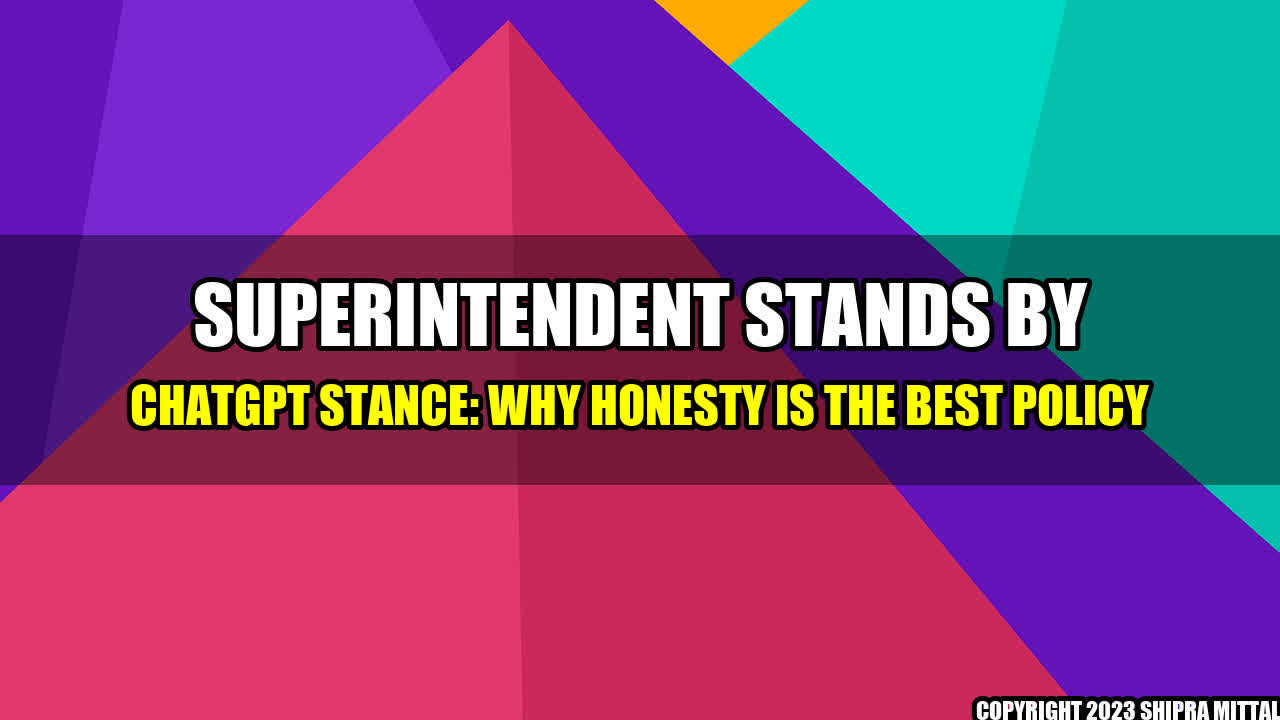The Story
Once upon a time, there was a school superintendent who was asked about his stance on ChatGPT, an online chatbot that helps students with their homework. Unlike other superintendents who condemned ChatGPT for promoting cheating, this superintendent stood by his belief that ChatGPT can actually be helpful for struggling students when used responsibly.
While some people criticized him for being too lenient, the superintendent refused to hide from his opinion and instead decided to open a dialogue with the public about the pros and cons of using ChatGPT as a learning tool.

Akash Mittal Tech Article
Share on Twitter Share on LinkedIn